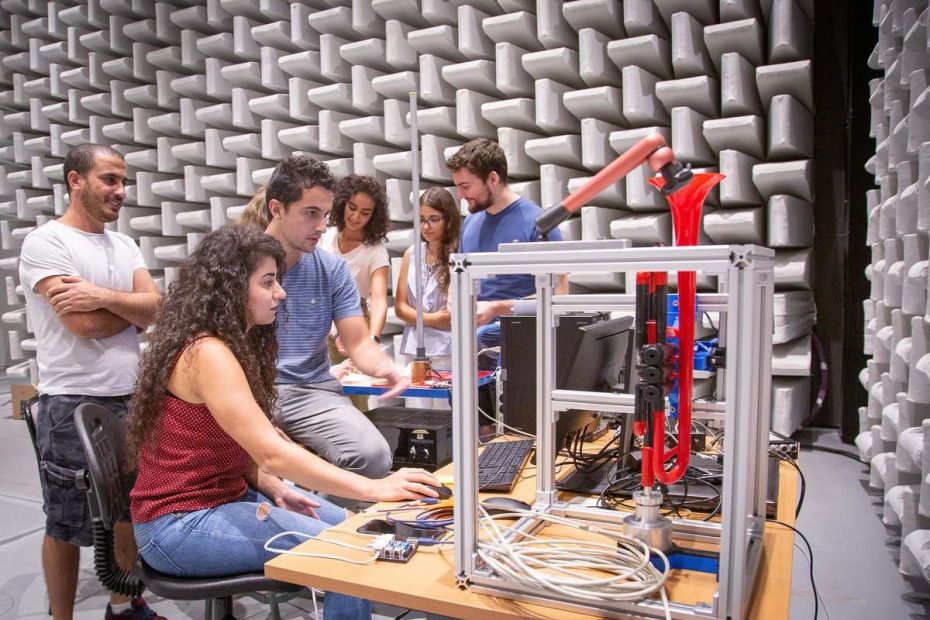
IDENTITY
Project name : WAVES
Program : Erasmus+
Action: Erasmus Mundus Joint Master's Degree
Theme : Master of Mechanical Engineering, "Waves, Acoustics, Vibrations, Enginnering and Sound" course
Key words: Triple degree, acoustics and energy efficiency for sustainable construction, Digital modeling, Creative approach
Duration: 01/09/2019 - 01/09/2026
Budget: €3,052,000
Coordinator : University of Toulouse 3
Project leader(s) : Bruno Lombard, Faculty of Science/Laboratory of Mechanics and Acoustics (LMA)
Partners: Aix-Marseille University, France
- Aix-Marseille University, France
- Ecole Centrale Marseille, France
- University of Coimbra, Portugal
- Polytechnic University of Valencia, Spain
OBJECTIVES AND ACTIVITIES
The Master Erasmus Mundus WAVES (Waves, Acoustic, Vibrations, Engineering & Sounds) is a multi-degree program taught entirely in English. It synergistically integrates the research and teaching specialties of the 4 partner universities, offering the following 2-year mobility pathway: Acoustics and Environmental Efficiency of Infrastructures in Coimbra; Physical Acoustics, Sound and Ultrasonics in Valencia and Advanced Engineering Methods for Acoustic and Vibratory Problems in Marseille.
It draws on innovative teaching approaches and an active network of 20 associate academic partners around the world and 21 industrial partners, all of whom contribute to enriching the training and raising the international profile of the WAVES Master's degree.
Innovation: Acoustics is directly linked to one of man's senses. Sounds can be perceived as a nuisance, degrading quality of life and productivity at work. On the contrary, they can be an effective means of communication or entertainment. Acoustics and vibrations are omnipresent in society and economic activities. They have an impact on a wide range of sectors, in particular construction, transport, telecommunications, energy, medical imaging, electronics and leisure.
There are a number of Master's degree courses in acoustics around the world. They are generally focused on a given theme, such as vibro-acoustics. Other existing Master's themes are acoustic insulation and non-destructive testing (NDT). The Erasmus Mundus WAVES Master's program responds to this need for knowledge corresponding to different disciplinary fields (physical acoustics, building acoustics, psycho-acoustics and digital simulation) that are never taught in a single course.
The specificity of the Master's program lies in the wide range of skills in acoustics, from theoretical issues to building assessment. The curriculum offers a range of acoustics-related topics to meet the challenges of tomorrow's acoustics engineers. This requires both strong practical skills and advanced theoretical knowledge in mechanics, mathematics and scientific computing. All partners associated with the program are chosen to represent these different facets, to facilitate WAVES students' contact with renowned experts in each field.
A significant achievement of the project : Setting up a Master's program with mobility between 4 universities/engineering schools to train general acoustic engineers with a range of theoretical, experimental and numerical skills. The innovative teaching method used in addition to traditional courses is based on the fundamental role given to experimental observations, prior to theoretical analysis of the phenomena in question. Group projects and laboratory work are strongly emphasized. Lectures and practical sessions consolidate students' knowledge and skills as they carry out their projects.



